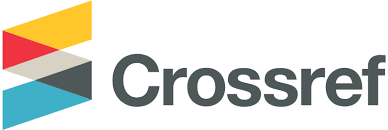PERSEPSI GURU TENTANG STRES KERJA, COUNTERPRODUCTIVE WORK BEHAVIOR (CWB), DAN NEGATIVE AFFECTIVITY (Studi Pada Guru Sekolah Menengah Pertama Di Banda Aceh)
Abstract
This study aims to analyze the phenomenon of teacher work stress behavior at SMPN in Banda Aceh City which has impact on counterproductive work behavior (CWB). Where the negative affectivity as a control variable to the relationship between the two behaviors. Sample of 103 people taken based on random sampling technique. Primary data collection is done by distributing questionnaires to specified sample members. Data analysis using Moderate Regression Analysis (MRA), with the help of SPSS (Statistic Package for Social Science) devices. The analysis of the results of this study found that teacher work stress had negative impact on CWB, with coefficient value (β) of -0.390. Furthermore, Negative Affectivity has negative impact on CWB behavior, with coefficient value (β) of -0.301, and negative affectivity moderate the impact of work stress relation on CWB behavior, at the teacher of SMP Negeri in Banda Aceh City, with regression coefficient (β) 0,653. This result means that Negative Affectivity has a strong relationship in influencing job stress and CWB behavior on the teacher.
Downloads
References
Boyle, G. J., Borq, M. G., Falzon, J. M., dan Baglioni, A. J. (1995). A structural model of the dimension of teacher stress. British Journal of Educational Psychology. 65 (1), 49-67. DOI: 10.1111/j.2044-8279.1995.tb01130.x.
Chang, K., dan Smithikrai, C. (2010). Counterproductive behaviour at work: An investigation into reduction strategies. The International Journal of Human Resource Management., 21(8), 1272-1288.
Fox, Suzy; Spector, Paul E. (1999). "A model of work frustration-aggression". Journal of Organizational Behavior. 20 (6), 915–31. doi:10.1002/ (SICI)1099-1379 (199911)20:6<915 ::AID- JOB918>3.0.CO;2-6.
Ghozali, Imam. (2011). Aplikasi Analisis Multivariate dengan Program SPSS. Semarang: BP Universitas Diponogoro.
Indrianto, Nur., dan Supomo, B. (2009). Metode Penelitian Bisnis untuk akuntasi dan manajemen. Edisi pertama.Yogyakarta, BPFE.
Keil R.M.K. (2004). Coping and Stress: A Conceptual Analysis. Journal of Advanced Nursing. 45 (6), 659–665. doi:10.1046/j.1365-2648.2003.02955.x
Koch, Alex S.; Forgas, Joseph P.; Matovic, Diana. (2013). Can negative mood improve your conversation? Affective influences on conforming to Grice's communication norms. European Journal of Social Psychology. 43 (5): 326–334. doi:10.1002/ejsp.1950.
Kokkinos, C.M. (2007). Job stressors, personality and burnout in primary school teachers. British Journal of Educational Psychology. 77 (1), 229 – 243.
Kuncoro, M. (2009). Metode Riset Untuk Bisnis & Ekonomi. Jakarta, Penerbit Erlangga.
Kurnia, W., Aisah, E. P., dan Tri, R. (2013). Pengembangan Perangkat Pembelajaran Menggunakan Media Trainer Sistem Penerangan Otomotif Pada Program Keahlian Teknik Kendaraan Ringan Dengan Menerapkan Model Pengajaran Langsung. Jurnal Pendidikan Vokasi: Teori dan Praktek. 1 (1), 73-79.
Liana, E. Tan. (2013). Sikap Pelanggan Mengenai Program Crm “Return Guest Program” Di Surabaya Plaza Hotel. Jurnal E-Komunikasi Program Studi Ilmu Komunikasi Universitas Kristen Petra. 1 (2), 234-242.
Mahdani, I., dan Haekal M. (2016). Budaya Etika, Niat Untuk Bertahan Dalam Organisasi Dan Kesesuaian Individu Dengan Organisasi Sebagai Mediator (Studi Pada Pt. Garuda Indonesia Medan). Jurnal Ekonomi Manajemen & Akuntansi. 2 (1), 1-22.
Marcus, B., dan Schuler, H. (2004). Antecedents of counterproductive behaviour at work: A general perspective. Journal of Applied Psychology, 89(4), 647-660.
Mount, M., Ilies, R., dan Johnson, E. (2006). Relationship of personality traits and counterproductive work behaviors: The mediating effect of job satisfaction. Personnel Psychology. 5: 591-622.
Nency, H. (2015). Persepsi Guru Terhadap Pembelajaran Tematik Pada Implementasi Ktsp Sd Se-Kecamatan Bayan Kabupaten Purworejo Ditinjau Dari Aspek Kognitif, Afektif, Dan Konatif. Jurnal online: (http://journal.uny.ac.id/ index.php/jpji/article/vie.
Nur, Ikhsan. (2014). Hakikat Guru Sebagai Pendidik Profesional. http://daeng-icn.blogspot.co.id/2014/07/hakikat-guru-sebagai-pendidik.html. diakses: 30-04-2017.
Robbins, S.P., dan Judge, T. A. (2007). Perilaku organisasi. Alih bahasa: Diana Angelica. Jakarta, Salemba Empat.
Sackett, Paul; Berry, Christopher; Wiemann, Shelly; Laczo, Roxanne (2006). "Citizenship and Counterproductive Behavior: Clarifying Relations Between the two Domains".Human Performance. 19 (4),441–64. doi:10.1207/s1 5327043hup1904_7.
Salgado, J. F. (2002). The big five personality dimensions and counterproductive behaviors. International Journal of Selection and Assessment. 10: 117-125.
Setiawan, Nugraha. (2007). Penentuan Ukuran Sampel Memakai Rumus Slovin dan Tabel Krejcie-Morgan: Telaah Konsep Dan Aplikasinya. Makalah disampaikan pada Diskusi Ilmiah Jurusan Sosial Ekonomi Fakultas Peternakan Unpad, Kamis 22 November 2007.
Sekaran, Uma. (2007). Metode Penelitian untuk Bisnis. Alih bahasa: Kwan Men Yon.Jakarta. Salemba Empat.
Slaybaugh, J., Evans, C dan Byrd, R. (2004). Second Year Teachers’ attitudes toward the Teaching Profession. National Forum of Teacher Education Journal. 14E (3), 31-36.
Stowell, J.R., Kiecolt-Glaser, J.K dan Glaser, R. (2001). Perceived stress and cellular immunity: When coping counts. Journal of Behavioural Medicine. 24: 323-339.
Urbayatun, S. (2006). Hubungan Antara Pemenuhan Kebutuhan dengan Afek Positif dan Afek Negatif Pada Lansia. Humanitas. 3 (1), 63-74.
Watson, D.; Clark, L. A. (1984). Negative affectivity: The disposition to experience negative aversive emotional states. Psychological Bulletin. 96: 465–490. doi:10.1037/0033-2909.96.3.465. PMID 6393179.
SI-MEN menggunakan lisensi Lisensi Creative Commons Atribusi 4.0 Internasional (CC BY 4.0) . atau lisensi yang setara sebagai izin optimal untuk publikasi, pendistribusian, penggunaan, dan penggunaan kembali karya ilmiah.
Lisensi ini mengizinkan siapa pun untuk menulis, memperbaiki, dan membuat kreasi turunan bahkan untuk tujuan komersial, selama kredit yang sesuai dan pengakuan yang tepat terhadap publikasi asli dari Jurnal Ilmiah dibuat untuk memungkinkan pengguna menelusuri kembali ke naskah dan penulis asli.
Pembaca juga diberikan akses penuh untuk membaca dan mengunduh naskah yang diterbitkan, mencetak ulang dan mendistribusikan naskah dalam media atau format apa pun.

Ciptaan disebarluaskan di bawah Lisensi Creative Commons Atribusi 4.0 Internasional .















